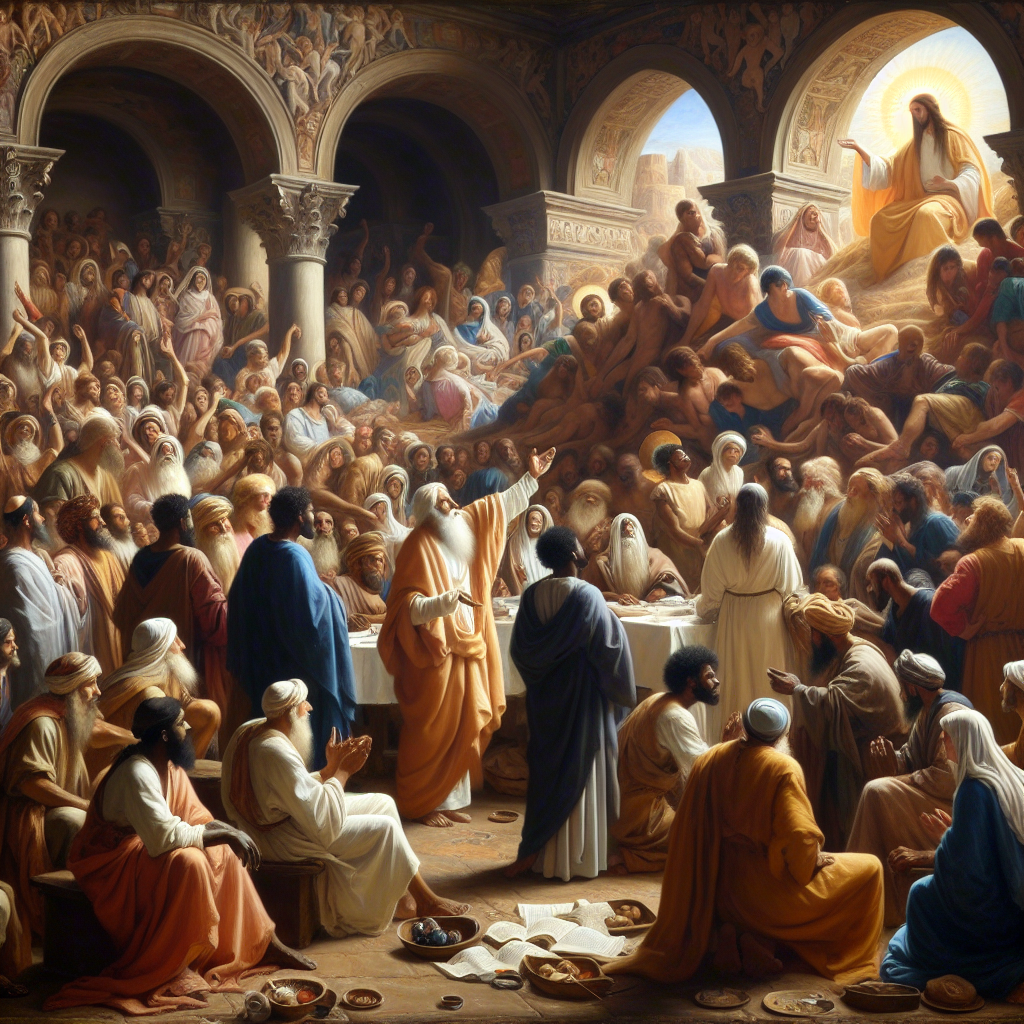Psalm 66: A Thanksgiving Psalm of Universal Praise

Psalm 66
Psalm 66 is a powerful expression of thanksgiving and praise, emphasizing God's sovereignty, deliverance, and personal involvement in the lives of His people. The psalmist invites all the earth to join in glorifying God for His mighty works and personal blessings.
Key Verses (NIV)
- Psalm 66:1-2: "Shout for joy to God, all the earth! Sing the glory of his name; make his praise glorious."
- Psalm 66:5-7: "Come and see what God has done, his awesome deeds for mankind! He turned the sea into dry land, they passed through the waters on foot—come, let us rejoice in him. He rules forever by his power, his eyes watch the nations—let not the rebellious rise up against him."
- Psalm 66:8-12: "Praise our God, all peoples, let the sound of his praise be heard; he has preserved our lives and kept our feet from slipping. For you, God, tested us; you refined us like silver. You brought us into prison and laid burdens on our backs. You let people ride over our heads; we went through fire and water, but you brought us to a place of abundance."
- Psalm 66:16-20: "Come and hear, all you who fear God; let me tell you what he has done for me. I cried out to him with my mouth; his praise was on my tongue. If I had cherished sin in my heart, the Lord would not have listened; but God has surely listened and has heard my prayer. Praise be to God, who has not rejected my prayer or withheld his love from me!"
Themes
- Universal Praise: The psalm calls all people to praise God, highlighting His dominion over all creation and His mighty deeds.
- Special Favor: It emphasizes God's special favor towards His people, reflecting on historical deliverance and personal blessings.
- Personal Testimony: The psalmist shares a personal testimony of God's goodness and answers to prayer, encouraging others to trust in God's faithfulness.
Historical Context
Psalm 66 is generally attributed to the post-exilic period, a time of reflection on God's deliverance and blessings. The psalm recalls historical events like the Exodus, where God delivered Israel from Egypt, symbolizing His ongoing protection and intervention in their history.
Cultural Context
The psalm reflects Jewish customs of communal worship and thanksgiving. It emphasizes the importance of acknowledging God's mighty works and sharing personal testimonies within the community, fostering a collective spirit of gratitude and praise.
Etymology
- "Shout for Joy" (רוע - ruwa): A loud, jubilant cry of praise, often used in contexts of victory or worship.
- "Awesome" (נורא - nora): Denotes reverence and awe, highlighting the fear and respect due to God's mighty deeds.
Put it into Practice
- Gratitude in Daily Life: Regularly reflect on and express gratitude for God's goodness and deliverance in your life.
- Sharing Personal Testimonies: Share your experiences of God's faithfulness with others to inspire and encourage them.
- Trusting in God's Power: Cultivate trust in God's sovereignty, especially during challenging times, by recalling His past faithfulness.
Questions
- How does reflecting on God's power and dominion influence your daily decisions and perspective on life?
- What personal experiences of God's goodness can you share with others to encourage their faith journey?
- How can you incorporate the universal call to praise God into your interactions with people from diverse backgrounds and cultures?
Reflecting on these questions can lead to deeper personal growth and spiritual development, helping you to align your life more closely with the biblical principles highlighted in Psalm 66.